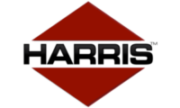When a compressed air emergency arises, operators who rely on compressed air to run their equipment may face major problems. In these situations, a compressed air rental can help you reduce downtime, increase production, and easily manage demand spikes.
However, it is crucial to prepare ahead of time for these unforeseen circumstances. Having a clear strategy in place ahead of time and a precise checklist with the requirements for your rental will guarantee you a streamlined rental solution.
Here are some important questions to ask yourself before renting a compressed air system.
Machine Type
Your first step should be to define the type of environment and application in which you will use your compressed air rental – such as general plant operations, food and beverage, power generating, or bioprocessing. Specify whether you intend to employ the compressor as your primary or backup power source.
Machine Size
Assess how many hours per day you will have the compressor operate and acknowledge any possible variations in demand load. Is the compressor going to run in shifts or all the time? It is also important to figure out how much CFM (cubic feet per minute) and PSI (pounds per square inch) is required.
Compressed Air Quality By assessing the quality of the air you need, you can help the rental company recommend not only the ideal compressor, but also other important auxiliary equipment and components including filtration systems, water coolers, and desiccant air dryers. Will you need air that is oil-free? Do you have any other needs that demand a dew point of -40°F?
Urgency of Rental
Is your rental a temporary solution to offset a capital expense? Is it for an immediate solution to a compressed air emergency? Evaluating your timetable will help your rental provider understand and accommodate the urgency of your request. As a result, you will be provided with a more precise cost estimate.
Installation
Anticipate how much space your rental equipment will occupy and how you’ll get it offloaded and connected properly. Will there be a clearly defined path with sufficient clearance for installation? What power source will be used to power it? Will you need to hire a qualified electrician for installation to ensure that everything is up to code? Do you have the appropriate hose size and connection type for the discharge to the air header tie in point?
Maintenance
Who will perform routine compressor maintenance checks on your system? Will the compressor be examined by the rental company? If so, do they meet the plant’s safety and insurance standards?
Taking the time to assess your specific situation allows you to formulate cost-saving solutions, preventing major problems from disrupting your operations. Harris Equipment’s compressed air experts can assist you with the transportation, installation, commissioning, and operation of equipment.
With our specialized service network, you can significantly reduce the hassle and downtime that comes with an unforeseen compressed air equipment issue.
For more information on how Harris can address your unique compressed air needs, give us a call and talk to one of our compressed air experts.

